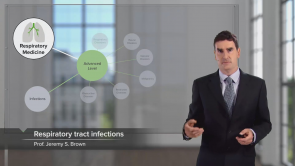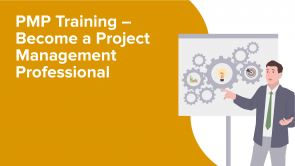Close Project or Phase

About the Lecture
The lecture Close Project or Phase by Sean Whitaker is from the course Archiv - PMP Training – Become a Project Management Professional (EN). It contains the following chapters:
- Close Project or Phase
- Accepted Deliverables
Included Quiz Questions
How many processes in the PMBOK® Guide are part of the closing domain group?
- There are two closing processes in the PMBOK® Guide.
- There are three closing processes in the PMBOK® Guide.
- There are four closing processes in the PMBOK® Guide.
- There are five closing processes in the PMBOK® Guide.
What types of projects should be formally closed?
- All projects should be formally closed.
- Only projects that the client has paid the final invoices should be formally closed.
- Only projects that the project sponsor nominates should be formally closed.
- Only projects that have ended as per the terms of a contract should be formally closed.
What processes have deliverables been through before becoming accepted deliverables?
- The Direct and Manage Project Execution process produces deliverables which then go on to the Control Quality process where they become verified deliverables before going to the Validate Scope process and becoming accepted deliverables.
- The Validate Scope process produces deliverables which then go on to the Control Quality process where they become verified deliverables before going to the Direct and Manage Project Execution process and becoming accepted deliverables.
- The Monitor and Control Project Work process produces deliverables which then go on to the Control Quality process where they become verified deliverables before going to the Validate Scope process and becoming accepted deliverables.
- The Direct and Manage Project Execution process produces deliverables which then go on to the Perform Quality Assurance process where they become verified deliverables before going to the Validate Scope process and becoming accepted deliverables.
What usually happens to the final product, service or result of a project?
- They are handed over to the client or a maintenance and operations team.
- They become inputs into the Develop Project Charter process.
- They project manager retains ownership and responsibility for them.
- They project sponsor retains ownership and responsibility for them.
When are lessons learned documented?
- Throughout the life of the project but collated and stored at the end of the project.
- Only during project closure work.
- During project planning work.
- During execution and closing work only.
Which of the following is not a valid reason to complete a benefits realization analysis during a project post implementation review?
- To formally approve the project and appoint the project manager.
- To determine if the benefits outlined in the project business case were delivered.
- To gather information that may improve future estimates of project benefits.
- To assess whether or not the expected benefits were reasonable.
Customer reviews
5,0 of 5 stars
| 5 Stars |
|
5 |
| 4 Stars |
|
0 |
| 3 Stars |
|
0 |
| 2 Stars |
|
0 |
| 1 Star |
|
0 |




